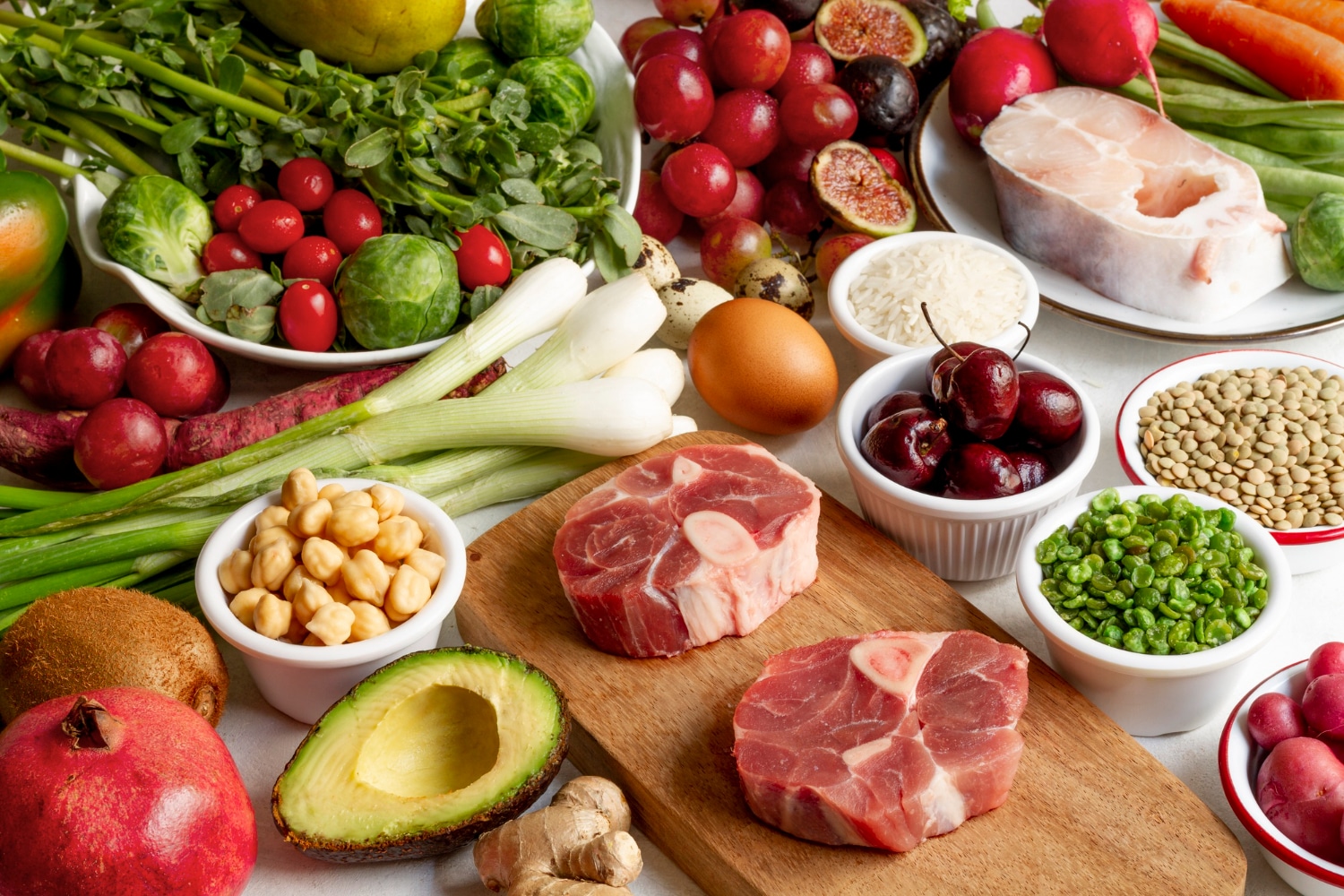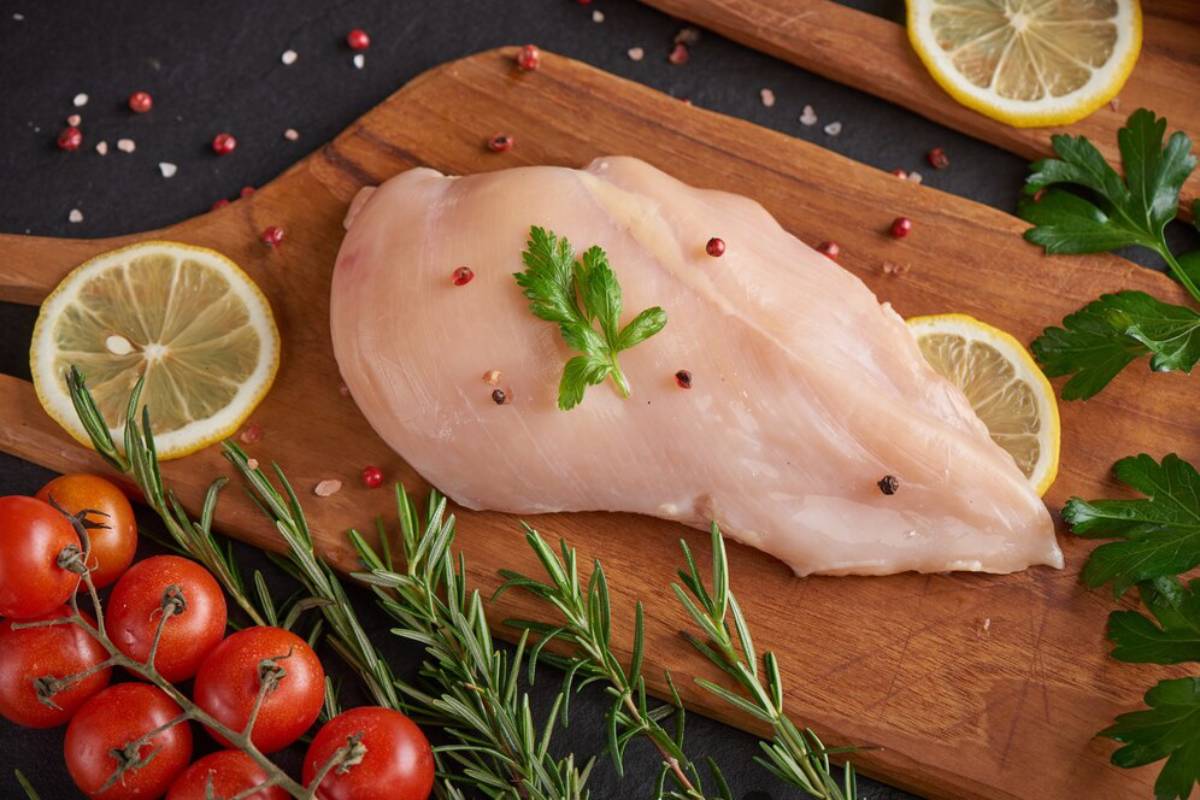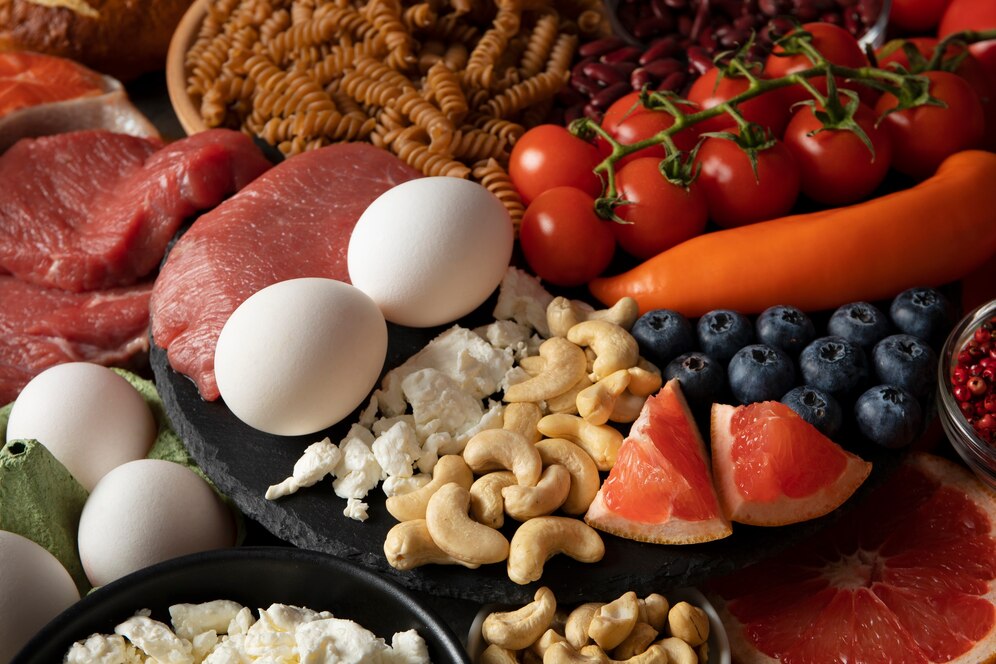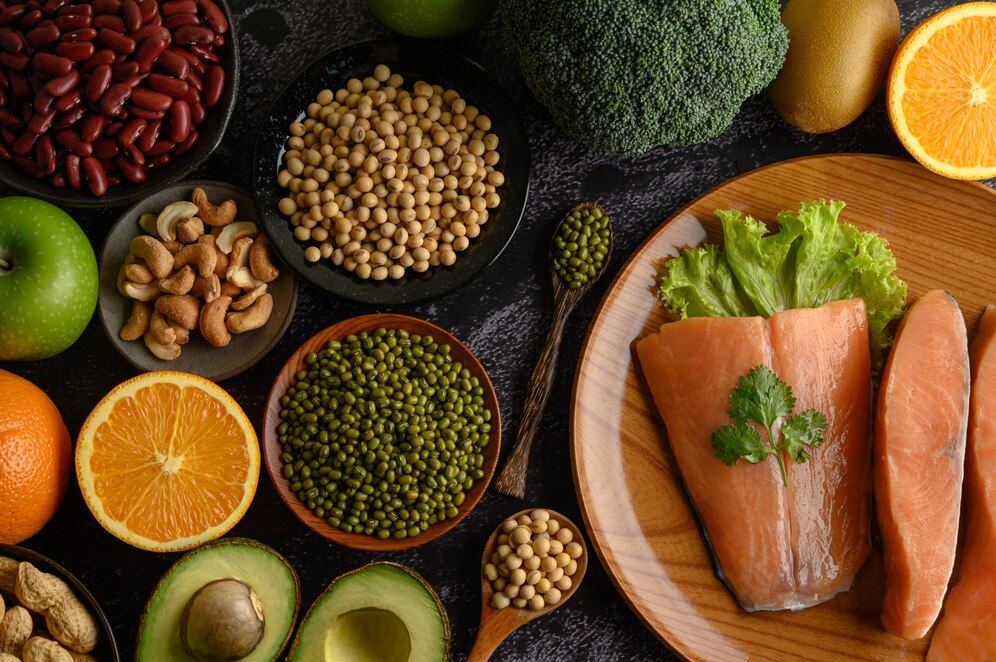
Macronutrient Ratios for Optimal Muscle Gain
Building muscle isn’t merely a gym grind—it’s a culinary quest, too. Resistance training creates micro-tears in your muscle fibres, sparking growth. Yet, without the right nutrients, those fibres struggle to heal and strengthen. A trifecta of protein, carbs, and fats is essential; neglecting any can stifle your gains.
But for many, the search for the perfect macronutrient balance feels like a maze. Some mistakenly believe that a mountain of protein alone holds the key. Others dive into extreme low-carb or all-out high-fat diets. The secret? Harmonious balance is the ultimate muscle ally.
This article unveils the essentials you need for macronutrient ratios aimed at muscle growth. You’ll discover:
- The power of protein, carbohydrates, and fats
- Tips to calculate your optimal macro blend
- Prime food sources to fuel your gains
- Meal planning tactics to maximise your success
- Pitfalls to dodge when crafting your diet
This article equips you with the knowledge to make savvy food choices. It’s perfect for aspiring bodybuilders and anyone eager to pack on muscle mass.
Macronutrients and Their Role in Muscle Growth
1. Protein: The Pillar of Muscle Development

Why Protein is Vital for Building Muscle?
Protein, a glorious chain of amino acids, acts as the architect for muscle repair and growth. Post-workout, your muscles endure tiny tears, like paper cutouts needing a patch. Amino acids swoop in as the heroes of healing, fostering stronger muscles in a dance known as muscle protein synthesis (MPS).
Maintaining daily protein intake is like fueling a bonfire; it keeps your body in a constant muscle-building glow and prevents it from snuffing out muscle.
How Much Protein Do You Need?
- For general muscle gains: 1.6 – 2.2 grams per kg of body weight (0.7 – 1.0 grams per pound)
- Advanced athletes may require: Up to 2.5 grams per kg of body weight
However, don’t dive headfirst into protein excess; your body can only synthesise so much at once. Too much can be stashed as fat or transformed into energy.
Top Protein Sources
- Animal-Based: Chicken breast, lean beef, turkey, fish (salmon, tuna), eggs, Greek yoghurt
- Plant-Based: Lentils, quinoa, tofu, tempeh, chickpeas, edamame, nuts
- Supplements: Whey protein, casein protein, plant-based protein powders
Pro Tip: Disperse your protein like confetti throughout the day. Aiming for every 3 to 4 hours makes MPS thrive.
2. Carbohydrates: The Fuel for Your Engine
Why Carbs are Crucial for Muscle Gain?
Carbohydrates are the gasoline that revs your energy engine. Without sufficient carbs, your fuel tank may run dry, leading to fatigue that drags your performance down.
Carbs are not just filler—they replenish muscle glycogen. This is essential for sustaining workouts and preventing muscle breakdown, keeping you in the fast lane.
How Many Carbs Do You Need?
- For muscle gain: 4 – 7 grams per kg of body weight (2 – 3 grams per pound)
- For high-volume training: Up to 8 grams per kg of body weight
Aim for carbs to represent 45-55% of your total caloric intake in your muscle-building strategy.
Best Sources of Carbohydrates
- Complex Carbs: Brown rice, quinoa, whole wheat bread, oats, sweet potatoes
- Fruits & Vegetables: Bananas, berries, apples, spinach, kale, carrots
- Legumes: Beans, lentils, chickpeas
- Fast-Digesting Carbs (Post-Workout): White rice, potatoes, honey, dextrose
A word of caution: steer clear of excessive refined sugars and processed carbs. Instead of sculpting lean muscle, they can turn you into a fat storage machine.
3. Fats: The Unsung Heroes of Hormone Harmony and Recovery
Why do Fats Matter in Your Diet?
Fats often get a bad rap, as many assume a low-fat diet is the way to stay svelte. In truth, fats play a pivotal role in hormone production, including testosterone, the bodybuilder’s best friend.
They also aid in absorbing vitamins A, D, E, and K while combating inflammation and tending to joint health with tender care.
How Much Fat Do You Need?
- For muscle gain: 0.8 – 1.2 grams per kg of body weight (0.3 – 0.5 grams per pound)
- Should comprise 20-30% of your total daily calories
Best Sources of Healthy Fats
- Monounsaturated Fats: Avocados, olive oil, nuts (almonds, walnuts)
- Polyunsaturated Fats: Fatty fish (salmon, mackerel), flaxseeds, chia seeds
- Saturated Fats (in moderation): Whole eggs, coconut oil, dairy products
Avoid trans fats and excessive saturated fat lurking in processed foods. They can sabotage your metabolism and hinder muscle recovery, putting a wrench in your fitness gear.
Finding Your Ideal Macronutrient Ratio

General Macronutrient Ratios for Muscle Gain
| Goal | Protein | Carbs | Fats |
| Lean Muscle Gain | 30% | 50% | 20% |
| Bulking (High Volume Training) | 25% | 55% | 20% |
| Slow, Sustainable Growth | 35% | 45% | 20% |
Step-by-Step Guide to Calculating Macros
Step 1: Determine Your Total Daily Caloric Needs
To gain muscle, you need a caloric surplus (eating more calories than you burn).
- Mild Bulk: 200-300 kcal surplus
- Aggressive Bulk: 500 kcal surplus
You can find your baseline caloric needs using online TDEE (Total Daily Energy Expenditure) calculators.
Step 2: Apply Macronutrient Ratios
Example for a 3,000 kcal/day plan using a 30% Protein / 50% Carbs / 20% Fats ratio:
- Protein: 30% of 3,000 kcal = 900 kcal → 225g protein
- Carbs: 50% of 3,000 kcal = 1,500 kcal → 375g carbs
- Fats: 20% of 3,000 kcal = 600 kcal → 67g fats
Meal Planning and Timing for Muscle Gain
Best Times to Eat Your Macros
- Pre-Workout: Carbs + Protein (Oatmeal + Whey Protein)
- Post-Workout: Fast-Digesting Carbs + Protein (Rice + Chicken)
- Before Bed: Slow-Digesting Protein + Healthy Fats (Cottage Cheese + Almond Butter)
Conclusion: Macronutrient Ratios for Optimal Muscle Gain

The right macronutrient ratio is essential for muscle growth, performance, and recovery.
Key Takeaways:
- Protein: 1.6 – 2.2 g/kg for muscle repair and growth
- Carbs: 4 – 7 g/kg for energy and glycogen replenishment
- Fats: 0.8 – 1.2 g/kg for hormone production and recovery
To boost muscle gain, track your macros. Keep a caloric surplus and focus on when you eat. Start today and watch your progress soar!